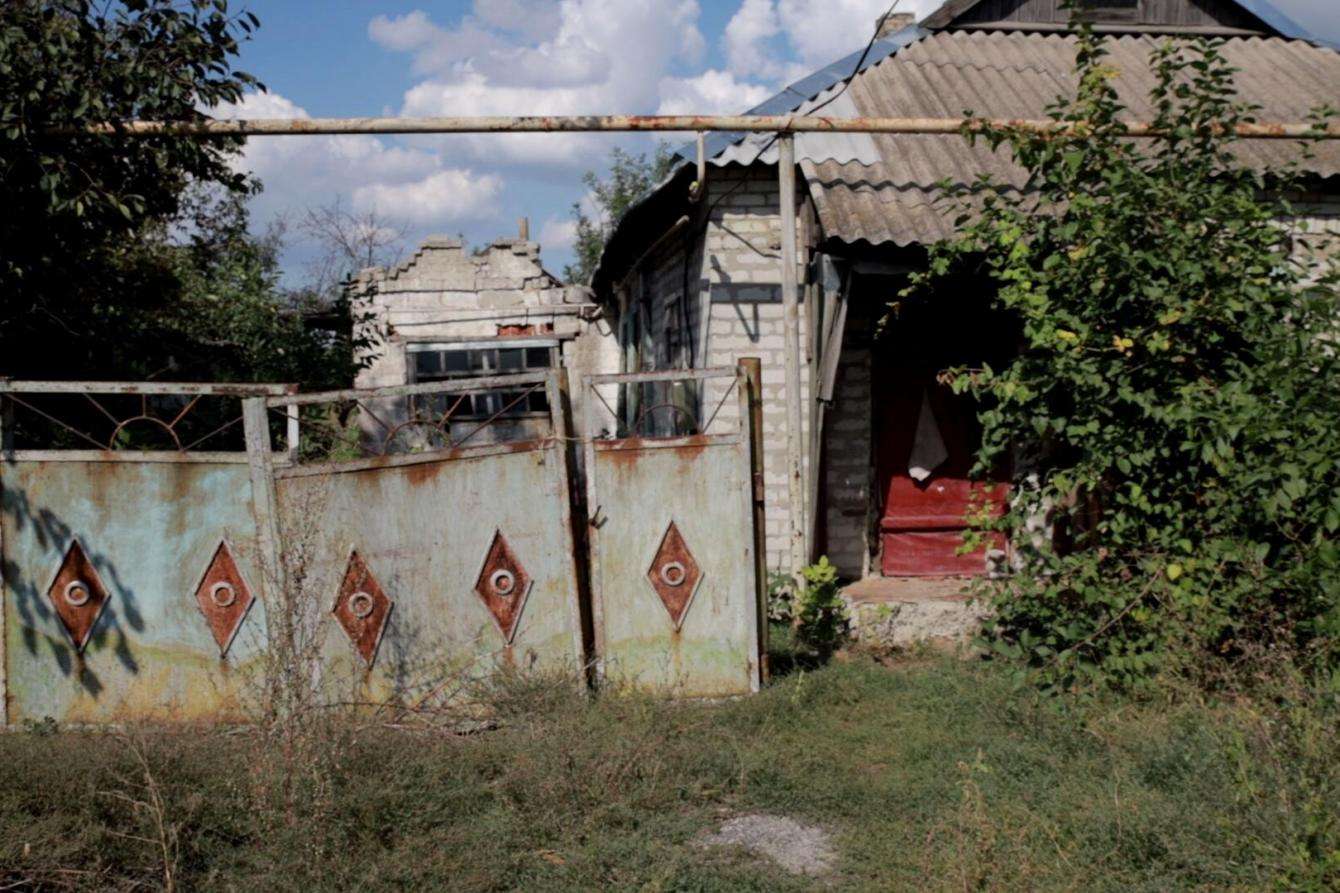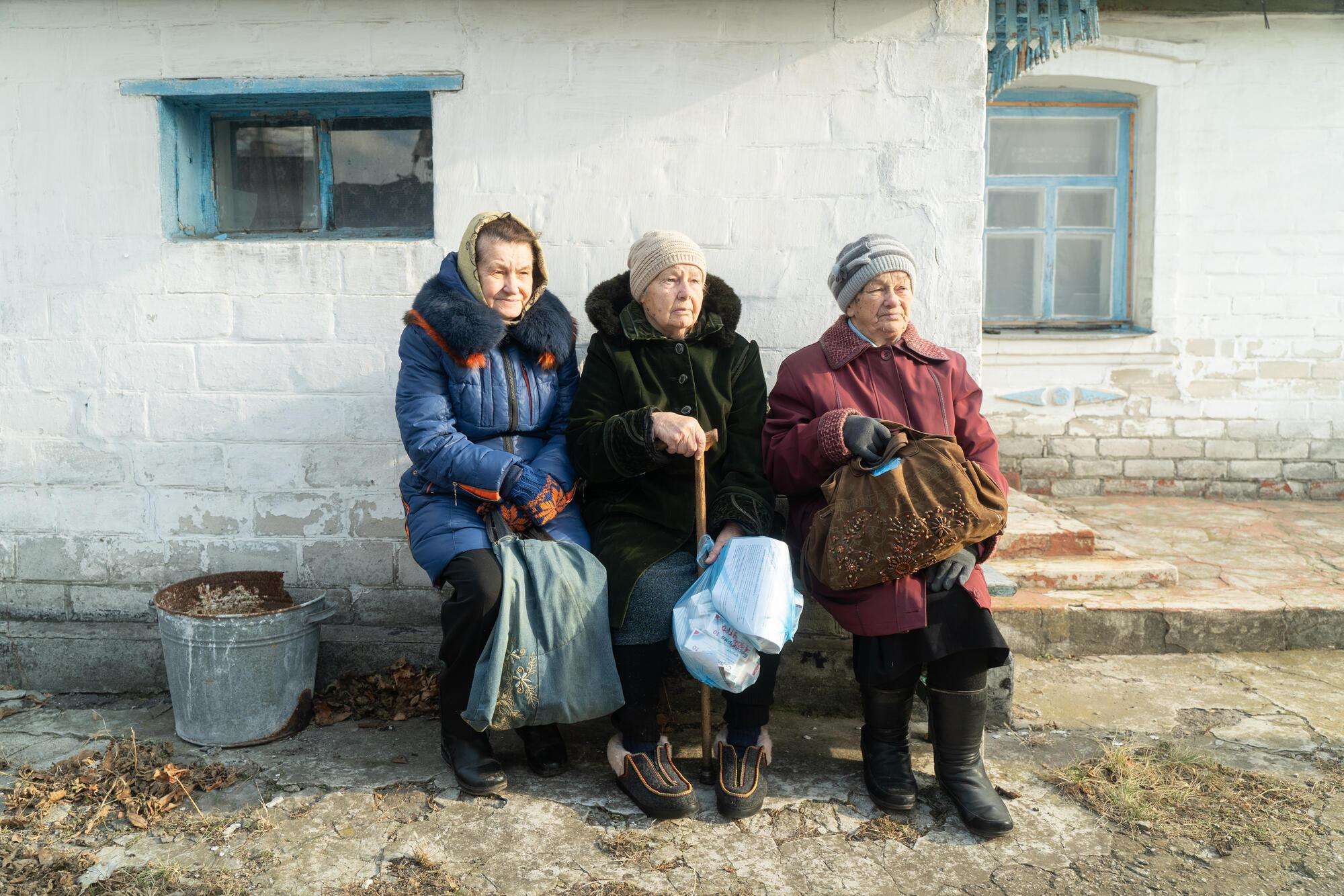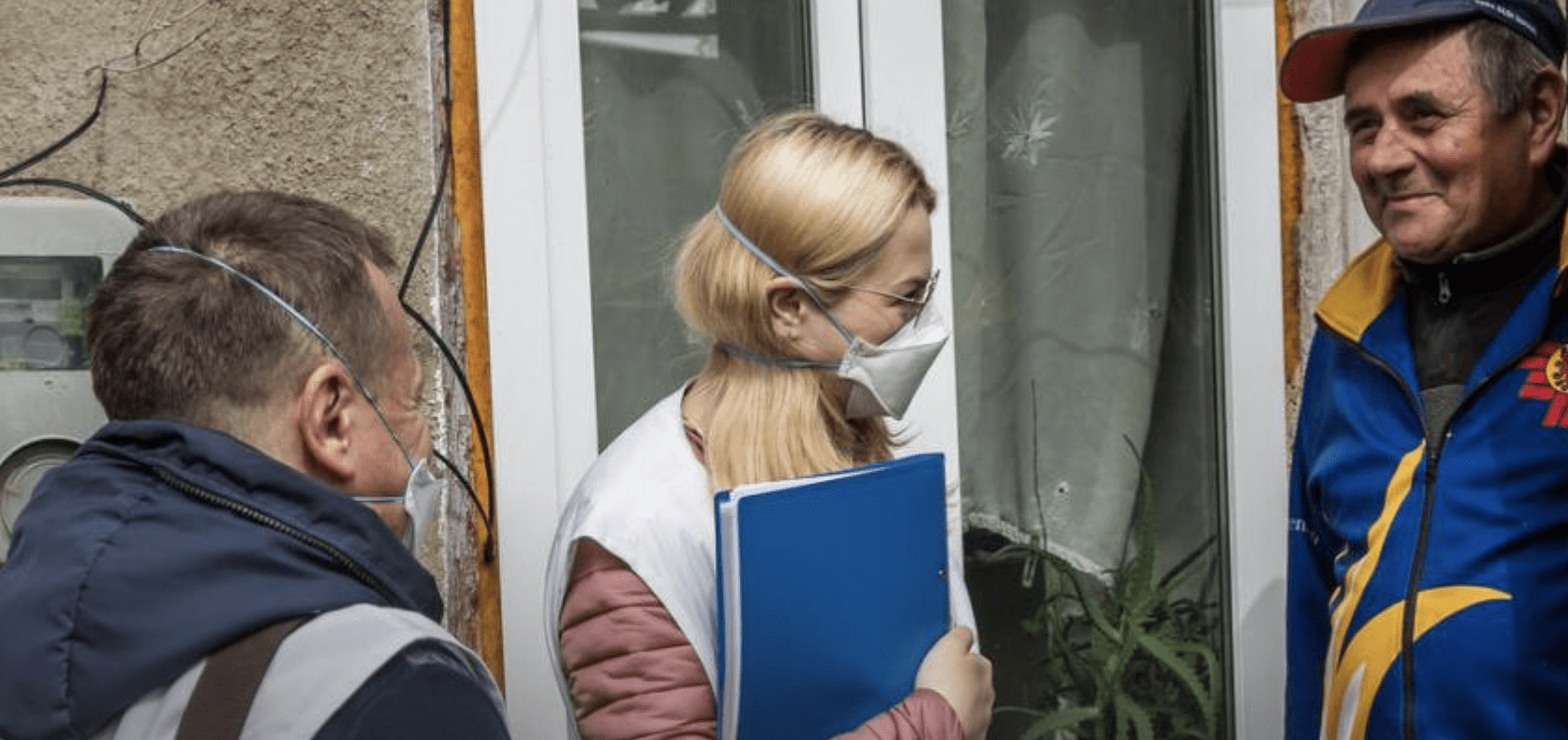Eastern Ukraine has been convulsed by conflict since 2014. In the Donetsk region, many people have left the villages and towns near the fighting, but some, especially the elderly, stayed. Despite the high incidence of chronic diseases such as asthma, diabetes, and heart disease, access to health care is extremely limited. In response, volunteers supported by Doctors Without Borders/Médecins Sans Frontières (MSF) are providing transportation and health information to help people get the medical care they need.
"There was before and after," said volunteer Valentyna Naumovychm, who works with MSF. "Groceries became unavailable abruptly. Medical services became unavailable. The kindergarten and school shut down. Everything [changed] in the blink of an eye. [Now] the village is dying out. Mostly the elderly remain. Those who could leave left. There were 500 people here, 300 households. Now there are 136 people and 75 households.” Those who stayed behind, she added, every aspect of life has been affected by the conflict: "We are constantly reminded of it."
In a nearby village, local volunteer Oksana Kovalenko echoes Naumovychm’s sentiment. "Everyone was waiting for the end of the conflict and thought it was temporary, but [the end] did not come, it does not come," she said.

Volunteers like Naumovychm and Kovalenko provide a crucial lifeline for people living in villages close to the fighting. Shelling and shooting happen almost every day. Landmines are also a serious threat. Transportation systems remain disrupted and many services are simply not available. “There is a doctor in our area but the outpatient clinic is five kilometers [about three miles] away," Kovalenko said. "Buses stopped coming here. How can these elderly people get to see a doctor?"
The conflict has also affected the availability of medical supplies. "Prices in our pharmacy are a little bloated," said volunteer Hennadiy Shapovalov. "We are located farther from the 'civilization,' near the front line, [so] not all suppliers agree to come here."
"When we started the project, we found that we have needs and we have services, but no connection between the needs and the services," said MSF activity manager Anastasiia Zhydkova. MSF also learned about local people who were using their own resources to help people in their villages. Some of them would bring clean drinking water to elderly residents, while others organized recreational activities. One person set up a laundry service in a village where households didn’t have running water.
"We hung up an announcement saying, 'A health team is [available]. We can provide some services, such as driving you to a family doctor. Or in case a doctor refers you there, driving you to the hospital,'" explained volunteer Oleksander Serheyev. "Generally, we drive and assist those who don’t have their own vehicles. After a visit to a family doctor where they receive a prescription, we drive them to a pharmacy. In these villages, we are all like relatives."
Over the course of three months, from July to September 2021, MSF-supported volunteers provided more than 500 trips to clinics and hospitals for people who would otherwise have struggled to reach the medical care they needed. During the same period, almost 800 prescriptions were filled and lifesaving medication was delivered to 270 patients.
"People can’t afford to go to the hospital," said volunteer Tetiana Karadzeli. "If I didn’t have this ancient car, I wouldn’t be able to get to [the] hospital either!" With a little support from MSF, health team volunteers are able to provide transportation, along with accurate, up-to-date health information, free of charge to vulnerable people in their communities.
MSF has worked in Ukraine since 1999, treating HIV/AIDS, tuberculosis in prisons, and hepatitis C, in addition to providing direct medical and humanitarian assistance to people affected by the conflict in the east of the country. MSF also provides training and support for doctors and nurses in four health centers and 11 village health points in the Donetsk region.


